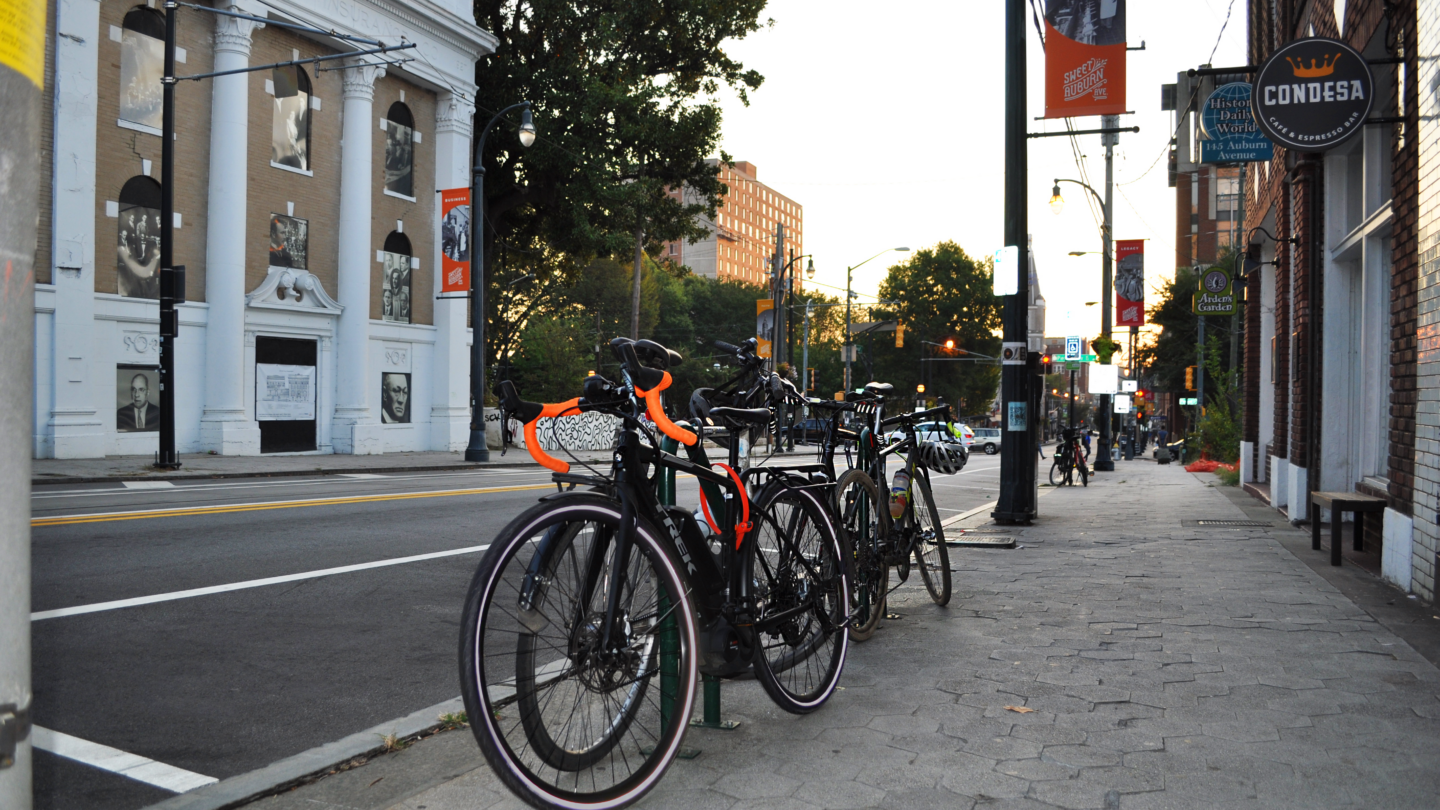Atlanta residents looking for a new set of wheels might be in luck.
The Atlanta City Council allocated $1 million to an equity-focused e-bike rebate program on Jan. 5 that is aimed at increasing access to e-bikes for residents who might find the cost a barrier to purchasing.
75% of rebates are earmarked for residents who earn $54,000 per year or less — that’s 80% of the Atlanta region’s median household income. They can receive a $1,500 rebate for a standard e-bike and $2,000 dollars for a cargo e-bike, whereas rebates for other residents are $500 for a standard e-bike and $1,000 for a cargo e-bike.
The program is a partnership among the City of Atlanta which provided funding, the Atlanta Regional Commission which will administer the program, and Propel ATL, an organization focused on safe streets that will conduct outreach and connect communities to the funding opportunity.
The rebates will be at the point of sale and must be used at a local Atlanta retailer.
“That’s the beauty of the instant rebate,” said Rebecca Serna, executive director of Propel ATL.
She said residents don’t have to pay the retail price of the e-bike at the store, which is a huge barrier to overcome. The rebate amount will be deducted from the total price of the bike, and the Atlanta Regional Commission will reimburse the local retailer.
This isn’t just good for local business. Foster said that maintenance is important down the line, and when folks buy e-bikes “direct to consumer” online, most local shops won’t put the e-bikes together or do maintenance on them in fear of voiding any warranties. He said the partners also want residents to feel comfortable going to their local shops for maintenance.
“An important thing to note is you may not see infrastructure in certain areas, but there’s definitely activity,” Foster said.
In areas like south and southwest Atlanta and the Westside, he said data demonstrates residents are walking, biking and taking public transit even though not all the infrastructure — like safe bike lanes or local bike shops — are there.
Additionally, he said census data reflects how many zero-car households there are. By providing funding to help lower the barrier to buying e-bikes, Foster said the partners hope to increase access to e-bikes as a transportation option.
Atlanta is not the first city to try and make this happen. Foster said Atlanta’s e-bike rebate model has learned from other cities, like Denver and Tampa, that have done similar projects and seen success. For example, e-bike programs have led to more local bike shops and manufacturers opening stores and an increase in cycling activity.
Foster and Serna both emphasized that this type of funding effort has to go hand-in-hand with continued infrastructure improvements. For some people, feeling safe on the streets is another disincentive from using alternative modes of transportation like an e-bike, and Foster and Serna said the e-bike rebate program is just one of the many measures the city is working on to diversify residents’ transportation habits.
“We talked to so many people that would love to bike to work or school or the park but they just don’t feel safe doing so [and] Atlanta still has a lot of streets that just really aren’t accessible by bike or even for people walking or using wheelchairs,” Serna said. “The city’s recent work on Vision Zero, which sets the goal of eliminating traffic fatalities and serious injuries, found that less than 10% of streets in Atlanta account for 73% of fatal and serious injury crashes — so the good news there is it’s a relatively small number of streets that are counting for most of those serious crashes.”
City councilmember Matt Westmoreland said there are several exciting parts of this policy for the City of Atlanta, but one of them is the collaboration between the city and the Atlanta Regional Commission. He said it’s not lost on him that Mayor Andre Dickens will take over as chair of the ARC soon.
Additionally, Westmoreland said that the e-bike program fits into larger goals as to how the city can combat climate change and its emissions.
“Figuring out ways to incentivize folks to take climate-friendly transportation options that are less expensive than how they are currently getting around, I think is a win-win all the way around,” Westmoreland said.
He said once the city has exhausted this initial bucket of money, he’s looking forward to working with colleagues at the city and the ARC to consider different federal projects or acts that have been passed in recent years and could provide additional revenue streams to support Atlanta’s e-bike rebate program or programs other cities and counties in the area might consider starting.
The rebates will be available starting in the spring of 2024 and will be awarded on a quarterly basis through a lottery system. Residents must be 18 years or older, and the rebates are limited to one per person.
To learn more, visit atlantaregional.org/ebikerebate.









